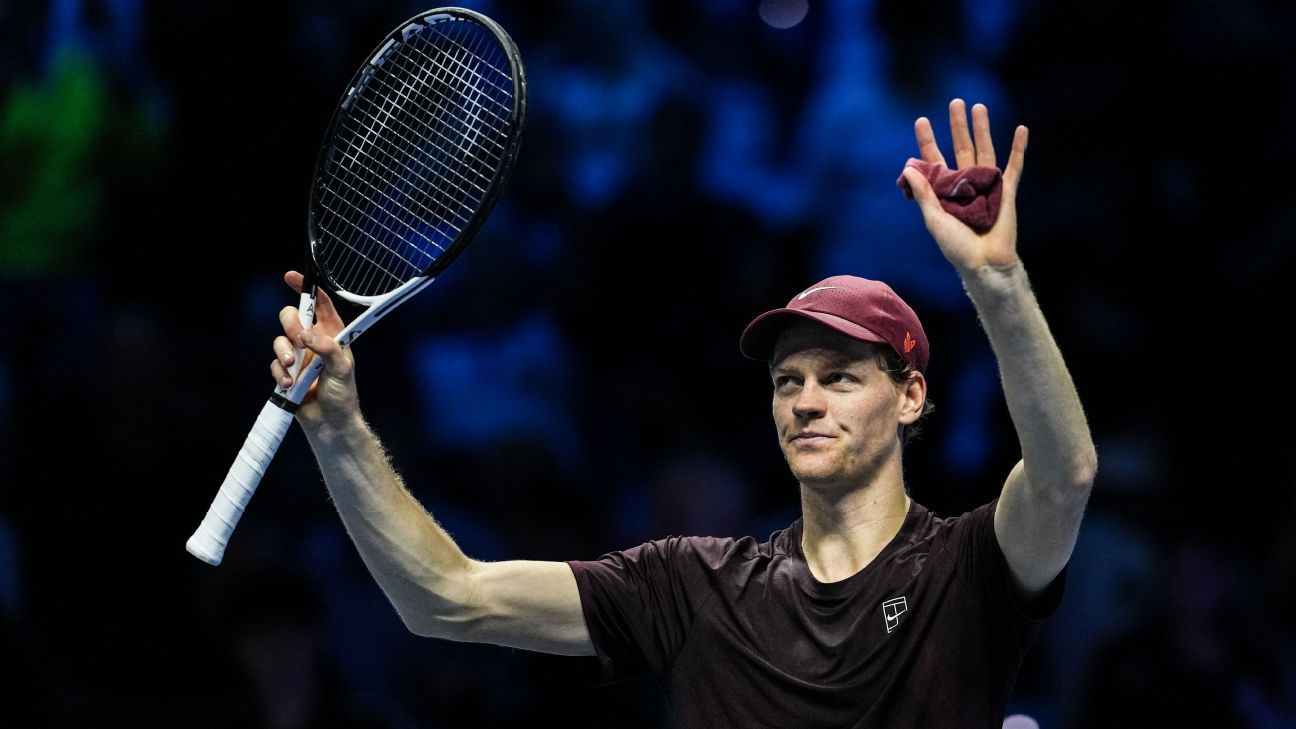Sinner’s steel holds firm in Turin semifinal clinch
Amid the fervent cheers of his home crowd, Jannik Sinner weathered Alexander Zverev’s assaults to claim a 6-4, 6-3 victory at the ATP Finals, extending his indoor streak and edging closer to year-end glory.

In the charged atmosphere of Turin’s Pala Alpitour, defending champion Jannik Sinner outlasted Alexander Zverev 6-4, 6-3 to punch his ticket to the ATP Finals semifinals, basking in the roar of Italian supporters who turned every point into a national rally. The second-ranked Italian stretched his indoor hard-court winning run to 28 matches, a sequence unbroken since his straight-sets defeat to Novak Djokovic in the 2023 final here. This triumph marked his fifth consecutive victory over the German, a head-to-head dominance that includes the Australian Open final and recent indoor battles in Vienna and Paris, where Sinner’s precise redirection of pace has consistently unraveled Zverev’s power game.
Resilience turns threats into triumphs
Sinner’s serve stood as an unbreachable wall from the first game, where he erased two break points with aces that cut through the tension like sharp inside-out forehands. Early in the second set, down 0-40, he scrambled back to hold, his footwork allowing quick transitions from defense to counter with crosscourt backhands that pinned Zverev deep. By match’s end, he had neutralized all seven break chances against him, his 12-7 ace advantage highlighting targeted placement—often wide or to the body—that disrupted returns on the skidding indoor surface.
The encounters stayed brisk, with few rallies extending beyond a handful of shots, as Sinner anticipated Zverev‘s heavy topspin by stepping inside the baseline to flatten returns and force errors. Zverev, a two-time winner here in 2018 and 2021, pressed with his one–two combinations of serve and forehand, but Sinner’s underspin passes along the lines neutralized the threat, turning potential marathons into efficient points. This mental elevation under home pressure not only preserved his service games but amplified his baseline rhythm, where clean striking exploited the court’s true bounce.
“I served very well on the important points,” Sinner said. “There weren’t that many long rallies.”
Year-end stakes heighten the drama
At No. 2 in the rankings, Sinner keeps his grasp on a year-end top spot within reach, though it hinges on capturing the title here while Carlos Alcaraz falters in the Jimmy Connors group, where the Spaniard has already secured two victories. Sinner tops the Bjorn Borg group with his pair of wins, leaving Zverev and Felix Auger-Aliassime at one each, as Ben Shelton lingers at zero; the top two from each section advance to the semis. His unblemished set record in this event since that Djokovic loss two years ago underscores a profound adaptation to these fast indoor conditions, where aggression trumps attrition.
The weight of defending his crown, coupled with the crowd’s pulsing energy, tested Sinner’s psyche, yet he thrived by channeling expectation into focus, his inside-in forehands finding corners when Zverev loomed largest. This win reignites the season’s narrative of pursuit amid scrutiny, positioning him to navigate the round-robin’s final twists with the composure that has defined his rise. As group dynamics tighten, Sinner’s tactical poise sets the stage for deeper runs, where every adjustment could tip the balance toward personal and national vindication.
Group rivals grind through survival tests
In the same Bjorn Borg section, Felix Auger-Aliassime clawed to his first victory of the tournament, rallying from a set down to edge Ben Shelton 4-6, 7-6(7), 7-5 in a match that exposed the indoor hard’s demand for rapid shifts. Shelton, making his Finals debut, powered through the opener with an early break, his booming serves and net rushes dominating the tempo until a wobbly service game let Auger-Aliassime break back, sparking the American’s visible ire as he smashed his racket toward the stands—drawing a code violation warning but no injuries. He rebounded to snag the set, but the second went to a tiebreaker where, after saving three set points, a double fault post-tumble handed the Canadian the equalizer.
Auger-Aliassime carried that surge into the decider, using crosscourt angles to stretch Shelton wide and exploit occasional forehand lapses on the quick surface, ultimately breaking in the last game on his third match point after Shelton repelled two earlier threats. The Canadian’s rally engagement grew stronger as points lengthened, his returns finding depth to disrupt Shelton’s power patterns and force discomfort in transitions. This gritty comeback injects urgency into the group race, mirroring Sinner’s own resilience and foreshadowing semifinals where psychological edges, forged in Turin’s intensity, will decide the elite clashes ahead.
“He was playing much better than me at the start. it’s not often that I get broken twice in the first set indoors,” Auger-Aliassime said. “It was a weird start, but as the match went on I was finding ways to put returns in the court. Once we engaged in the rallies, I felt like I could win more. You just have to fight, believe, and play the next point the right way.”